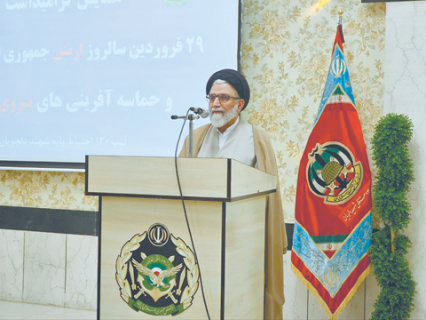
In a dramatic escalation of rhetoric, Iran’s Intelligence Minister Esmaeil Khatib has accused the United States and Israel of orchestrating a concerted campaign to destabilize the Islamic Republic from within. Speaking from the southwestern province of Kohgiluyeh and Boyer-Ahmad, Khatib claimed that Tehran’s adversaries are actively attempting to physically eliminate Supreme Leader Ali Khamenei and incite widespread social unrest, leveraging existing vulnerabilities within the nation.
These grave accusations come as Iran grapples with a burgeoning internal challenge: a severe water crisis threatening to trigger widespread societal upheaval. The country is experiencing its most significant drought in 60 years, exacerbated by aging infrastructure and what critics describe as inefficient resource management. This scarcity has already forced authorities to implement temporary water restrictions in the capital region and other major cities, prompting residents to resort to hydro-accumulators and stock up on water – a stark indicator of the deepening crisis. Meteorological data paints a grim picture, showing a drastic 86.5% reduction in rainfall nationally over the past month and a half compared to previous years, with Tehran alone witnessing a staggering 96.2% drop.
Khatib warned that any individual, whether wittingly or unwittingly, who contributes to internal dissent, effectively serves the agenda of Iran’s enemies. He underscored the pivotal role of Supreme Leader Khamenei as the nation’s “pillar and axis,” asserting that attempts to target the leadership, whether through assassination or internal destabilization, are part of this broader hostile strategy. Iranian authorities are keenly aware of the potential for the water crisis to ignite protests similar to those that rocked the southwestern Khuzestan province in 2021, driven by water shortages.
Adding to the uncertainty, conflicting signals have emerged regarding the government’s long-standing idea of relocating the capital from Tehran. President Massoud Pezeshkian recently revived the proposal to move the capital closer to the Persian Gulf, citing the mounting humanitarian crisis posed by Tehran’s water woes and rapidly expanding population. “When we say that the earth is subsiding by 30 cm every day, that means disaster,” Pezeshkian remarked, highlighting the urgent need for action. This statement, however, stands in stark contrast to earlier assurances this month from Pezeshkian’s marine resources representative, Ali Abdolalizadeh, who had stated the capital relocation would not be pursued, asserting that the crisis would be managed through new technologies and resource governance within Tehran, including an ambitious project to pipe water from the Persian Gulf.
Meanwhile, regional anxieties are intensifying as Israeli intelligence reports suggest Iran is rapidly reconstituting its missile capabilities. Assessments indicate that Tehran could possess approximately 2,000 missiles capable of striking Israeli territory within months, nearing its arsenal levels before a 12-day conflict earlier this year. Israel also observes Iran’s efforts to increase its launcher capacity and rearm allied groups, particularly Lebanon’s Hezbollah, which suffered significant losses in a previous conflict but is showing signs of resurgence. These developments fuel Israeli concerns about a renewed confrontation with Iran and its proxies.
Amidst these internal and external pressures, Iran has reportedly initiated attempts to re-establish diplomatic channels with the administration of former U.S. President Donald Trump. Reuters, citing informed sources, reported that President Pezeshkian sent a letter to Saudi Crown Prince Mohammed bin Salman, prior to his visit to the United States, expressing Tehran’s readiness for de-escalation and talks with Washington. Saudi Arabia has reportedly offered to mediate a resumption of negotiations, which were suspended after the 12-day conflict. This prospect of renewed dialogue, however, is met with skepticism in Israel, where officials frequently assert that Iran uses diplomatic engagement as a tactic to gain time and further bolster its military arsenals, underscoring the precarious balance of geopolitics in the Middle East.
